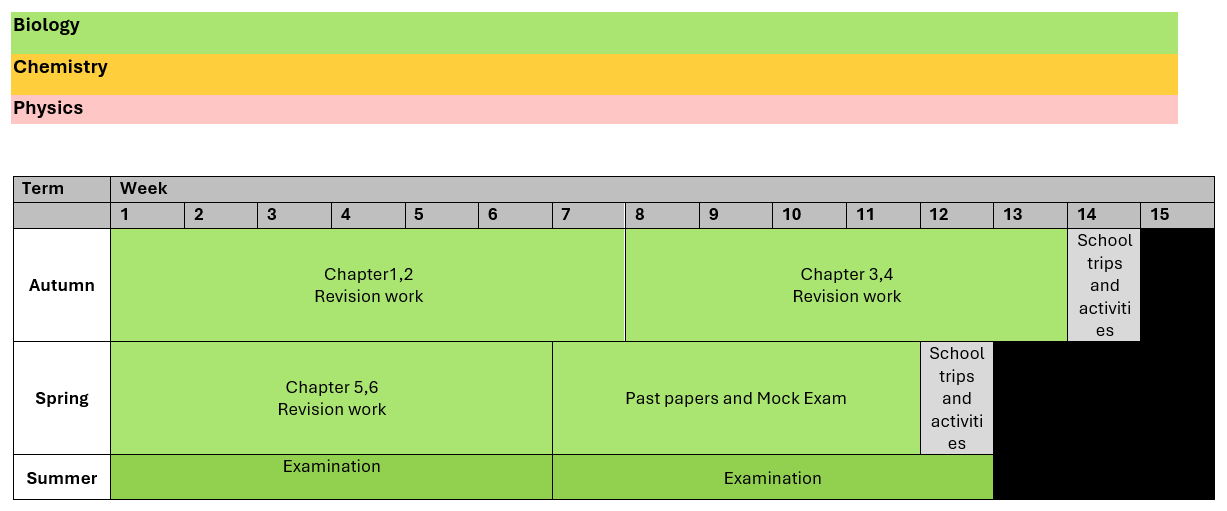

Science
Our Science curriculum is designed to ensure that our pupils can experience science in ways that can develop a love of learning about how the world around us operates.
We want our pupils to articulate that knowledge and apply it to everyday life in a range of settings. We want them to question theories and to enable them to be part of our wider society, which can work together to address and discuss issues which affect all of us. By developing knowledge and applying scientific evaluation.
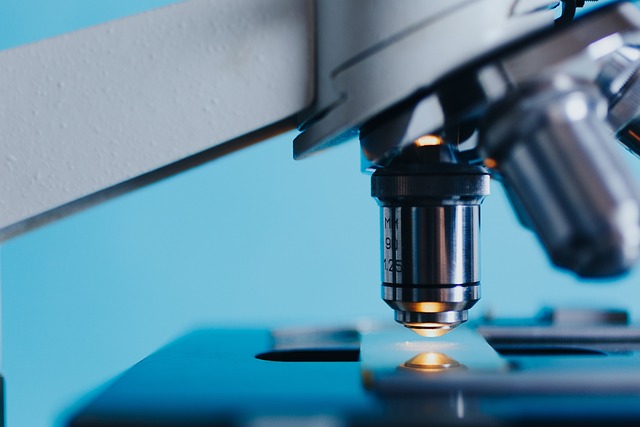
We strive to develop and/or embed pupils’ interest in science. We do this through a more practical, “hands-on” experience, understanding the responsibility this requires, and having respect for health and safety guidelines.
They are encouraged to develop their self-confidence and self-discipline and to ask questions of, and about accepted scientific fact and theory.
Qualification route/s – Entry level, GCSE, ASDAN
Science and our six core values
Balance
KS3 pupils are exposed to a combined and balanced science programme where they study Physics, Chemistry and Biology. They learn the key concepts through scientific thinking, the application and implications of science, cultural understanding and collaboration. Working towards an Entry-level Science qualification at the end of year 9.
KS4 are more focussed on achieving their GCSE qualification. They gain a deeper understanding of how science is used in the world of work and further education.
In all stages, they are encouraged to have a balanced view and to explore scientific means of enquiry.
Communication
Pupils are encouraged to explore scientific ideas through class discussion and collaborate with each other to achieve their goals. Pupils who have a natural propensity for the subject area will act as super-users for the class and help others that are not working at the same level.
Going Beyond Your Borders
The broad base exposure in KS3 encourages pupils to try new things and to push themselves to continually improve their work, through knowledge and practical experience, to obtain evidence to initiate critical and creative thoughts.
KS4 are stretched through more workplace-based standards and examination-based programme of study to prepare them for GCSE qualification.
Resilience
Not everything pupils do works first time. Processes like observations, discussions, practical investigations help to build confidence to expand their skills and knowledge. Frustrations can arise when a pupil’s vision is not matched with the expectations and outcome of their investigations, but they are encouraged to review their steps and discover where improvements can be made. Exams can also be a test for many pupils' resilience. Exam skills are taught, so students are not only familiar with the structure of the exam but also able to work independently through the paper.
Reflection
Planning ahead and envisioning predicted outcomes are key to improving their results. Pupils learn the Plan, Do, Review approach—Plan the work, Do the work, then review it to look for improvements.
Independence
Pupils are encouraged to work independently as much as possible, developing an inquisitive mind where trying and failing is key to learning to succeed in the future. Exam writing requires independent thought and recall. These are skills that are revisited many times, especially in KS4.
Overview of topics by Year group
Year 7 Long Term Learning Plan
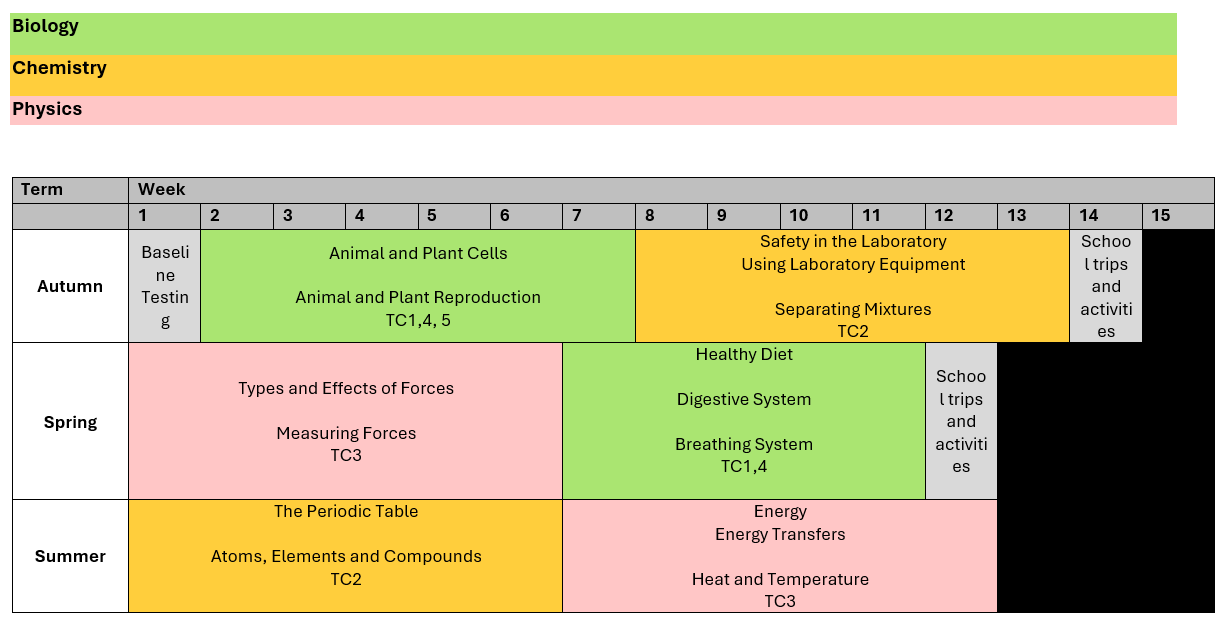
Year 8 Long Term Learning Plan
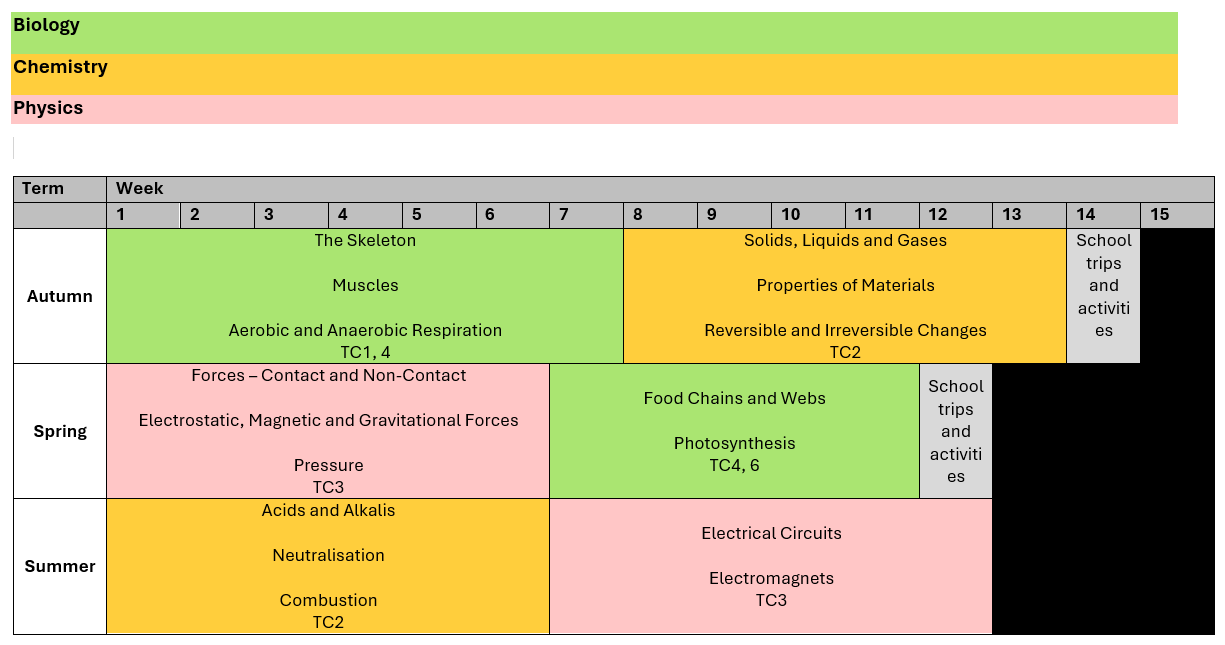
Year 9 Long Term Learning Plan
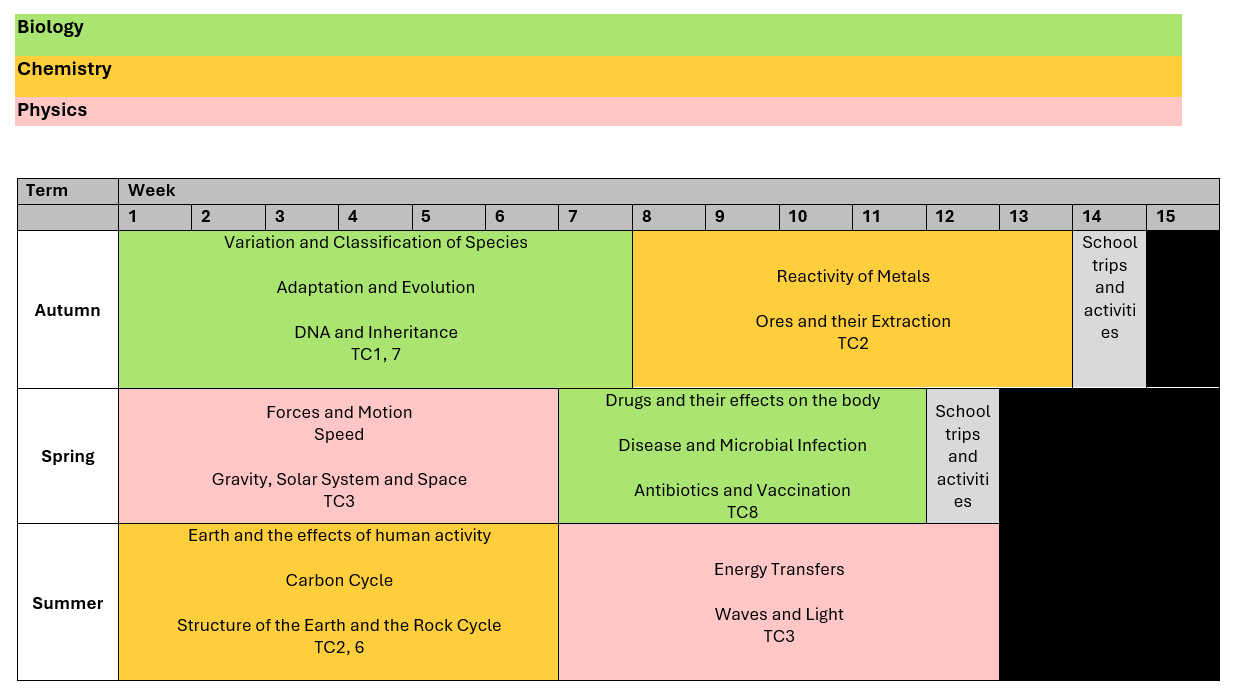
Year 10 Long Term Learning Plan
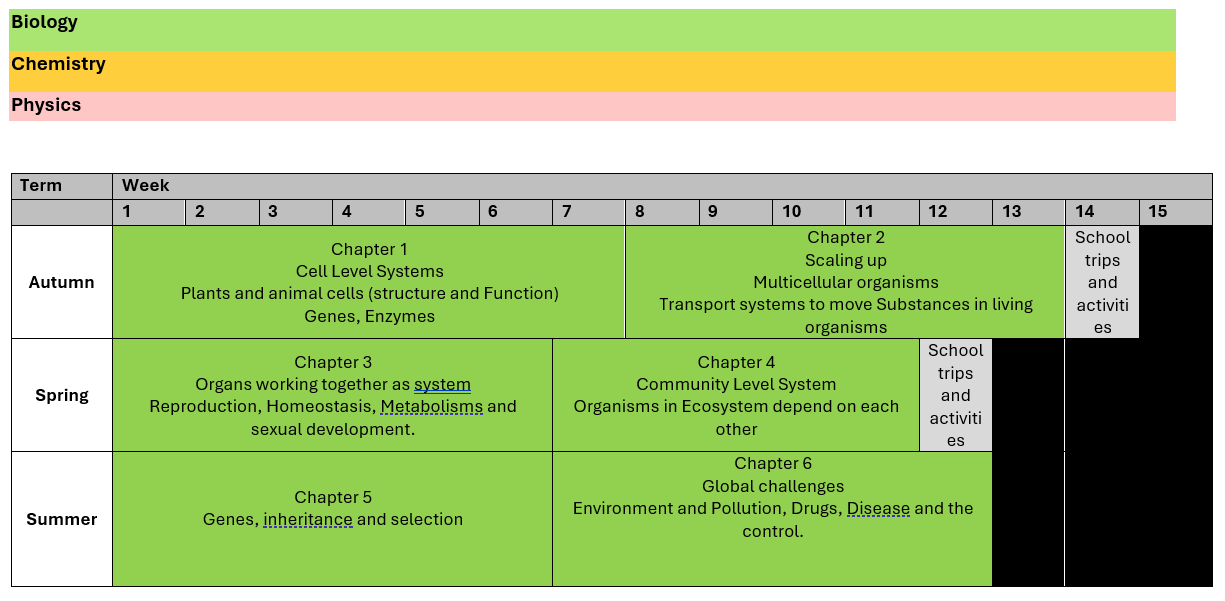
Year 11 Long Term Learning Plan
